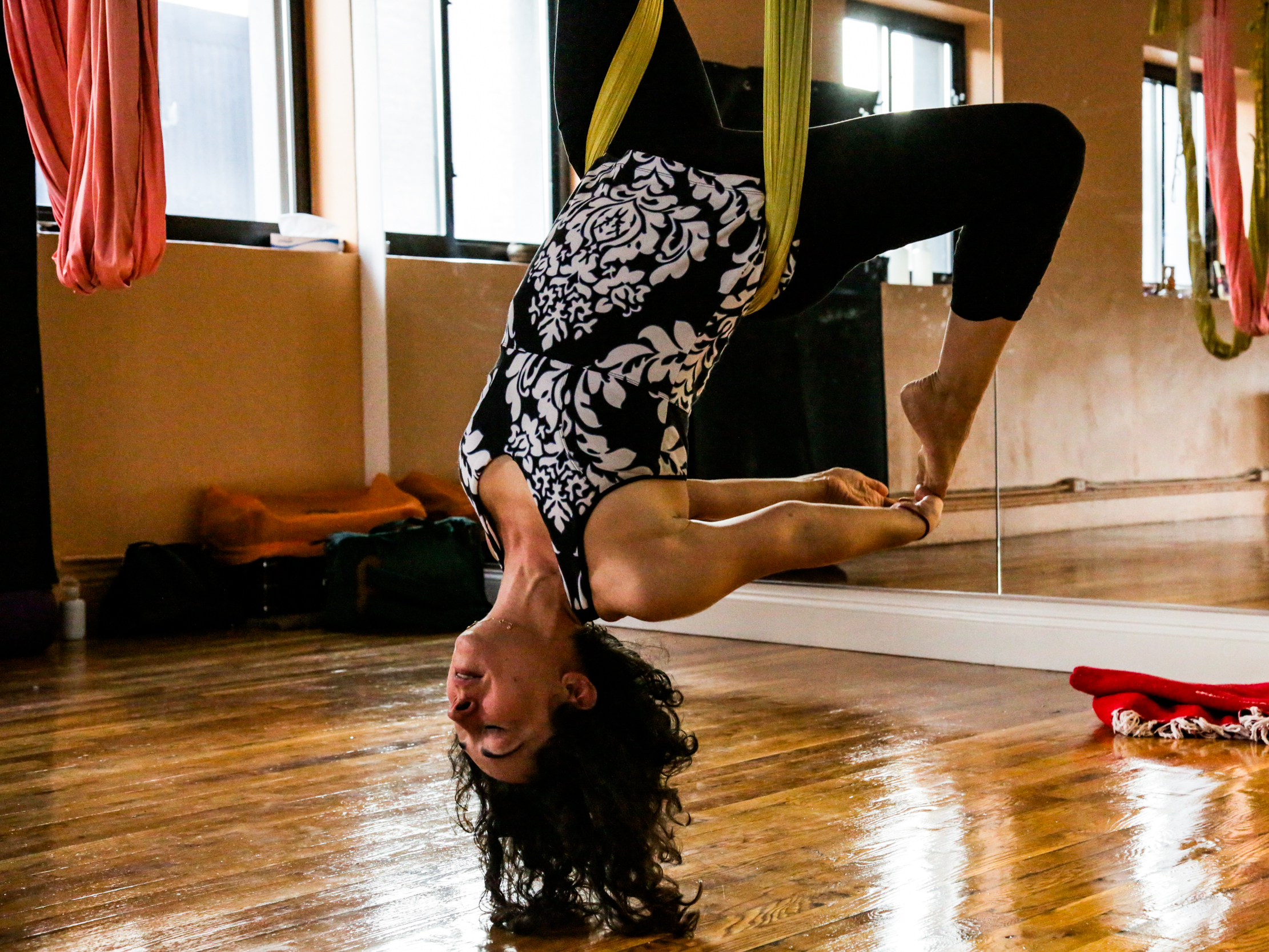- Consumers are engaging with fitness and wellness companies more than ever before, in an attempt to foster community and adapt health-oriented lifestyles.
- Today the global fitness industry is valued at nearly $100 billion. The International Health, Racquet and Sportsclub Association found that boutique fitness is the fastest growing brick-and-mortar exercise category – between 2013 and 2017 membership at boutique studios grew by a whopping 121%.
- Business insider spent the last several weeks trialing some of the most out-of-the-box exercise trends and talking to fitness experts on the future of the industry.
- Visit Business Insider’s homepage for more stories.
As consumers continue to gravitate toward lifestyles grounded in health and wellness, the fitness industry is cashing in to the tune of nearly $100 billion globally.
Today there are more options than ever before to stay fit and get your blood pumping than just hitting the elliptical. Though companies like Peloton are proving market power with its recent public offering, programs like ClassPass have served as a catalyst for both consumers and studio founders alike to test new boutique fitness models, inspiring a smattering of unique classes.
According to the International Health, Racquet and Sportsclub Association, boutique fitness is the fastest growing brick-and-mortar exercise category – between 2013 and 2017 membership at boutique studios grew by a whopping 121%. The IHRSA also found that 40% of health and fitness club members belong to a boutique fitness studio.
Read more: The CEO of exercise-bike startup Peloton says the company ‘sells happiness’ in pitch to investors
Business Insider reporter Irene Jiang tried some of the most obscure classes and treatments on the scene, including a visit to an "urban sweat lodge," a prison-style workout taught by former convicts, and full-body cryotherapy. Her takeaway? "I'm not sold on the idea of sweating or freezing my way to a better body... but it quickly became clear that what they really had to offer its customers was a sense of community. They also focused on self-improvement and reaching personal fitness goals rather than exercising to attain a certain body type."
Fostering community has increasingly become a selling point for fitness studios and gyms. In turn, consumers are aligning their fitness venues of choice with their personal identities more than ever before. Case in point: The massive outcry against SoulCycle and Equinox after consumers learned of owner Stephen Ross' ties to President Donald Trump.
"At the end of the day, the consumer is not just buying the product. They want to make sure that a company's values align with their own values," Ryan Junk, president of Cycle Bar, told Business Insider's Bethany Biron. I don't think that's a bad thing, personally think it's a great thing because it actually holds business owners and entrepreneurs accountable to more than just profit."
At the same time, gym brands like Planet Fitness and Lifetime Fitness are finding ways to capitalize on the ongoing retail apocalypse - by renting out empty store space in strip malls around the country and opening new locations to accommodate a growing number of memberships. Several of these companies are also profiting from partnerships with food and beverage companies, such as Crunch Fitness which partners with Smoothie King on deals for members.
"Our mission as a company is to inspire people to live a healthy and active lifestyle," Smoothie King's chief marketing officer, Rebecca Miller, told Business Insider's Kate Taylor.
With all of this in mind, Business Insider is sharing a series of stories on these topics and more this week.

